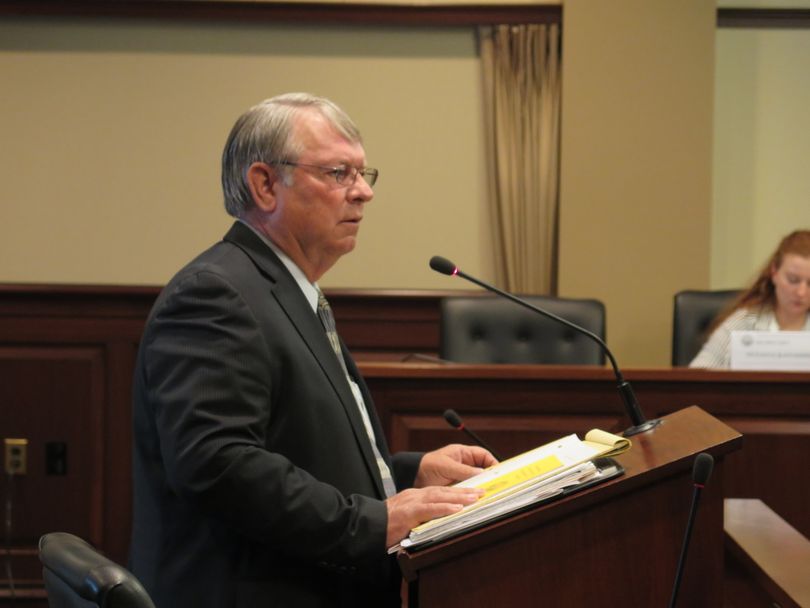On transparency, sunshine laws, and ‘buying a legislator’

Idaho Secretary of State Lawerence Denney told lawmakers today that if it were up to him, he’d be fine with no limits on campaign contributions, as long as all are quickly and fully reported. “I’m one of those who, I don’t care what the campaign contribution limit is. I think that’s self-limiting,” he said. Chuckling, he said, “If some company wants to buy a legislator, from my point of view, that’s all right as long as I know who’s paying for that.” He said courts have repeatedly said “that we can’t limit the First Amendment rights of people to say what they’re going to say, but we can require the reporting … we can require that transparency.”
Senate Minority Leader Michelle Stennett, D-Ketchum, told Denney, “I might disagree with you that I would care about how much money a single entity would pay to a candidate as long as they reported it – I wouldn’t want to go there.” Sen. Todd Lakey, R-Nampa, said he, too, believes limits are appropriate.
The comments came as Denney laid out his overall concerns about Idaho’s current Sunshine laws. Denney said he circulated a proposed reform bill in this year’s legislative session, but never introduced it, deciding based on input that an interim study was probably a better idea.
“Campaigns have changed over the last 20 years, especially after Citizens United,” Denney said. “There’s a lot less money that’s coming directly to candidates. A lot more of the money is being spent by independent expenditures. And I know that you’ve all got the different reports that you’re reading about gray money and dark money. I think that’s a change that we probably need to address in the sunshine laws, because it’s really not reported.”
Denney said he’s also concerned with activities by PACs. “Some of the things I see in some of the PACs, we really don’t know who is behind the PAC,” he said. “There’s no requirement for beneficial ownership or who is making the decisions behind that. I think that’s something that I would like to see you to address as well.”
Plus, he said, “One of the frustrations we have is we are charged with enforcing the law, but we really don’t have any tools to do that, and the fine for violating the law is at $250. What we typically do if we find a violation, or we think there’s a violation, we turn it over to the Attorney General, they do the investigation. But it’s pretty hard to get them to take a case for a $250 fine. That’s part of the frustration – we don’t think that we really have the tools there.”
Denney said, “If you’ll look at the sunshine law and what the purpose of the sunshine act is, it was to promote public confidence in government, and to promote openness in government and to avoid secrecy by those giving financial support to state election campaigns … or opposing legislation, or attempting to influence and so on. So the original intent was for openness in government. The Sunshine Law was passed in 1974 by initiative, and of course it has been amended quite a number of times.”
Denney said one significant change lawmakers made in the past year was requiring candidates to file their reports electronically. That’s very helpful in allowing his office to quickly get that information posted and available to the public, he said.
He also called for expanding the reach of reporting laws to include some elections which now are exempt. "We had a lot of complaints about the West Ada recall election, and people were wanting to know who was spending the money and how it was being spent and who was getting it," Denney said, "and there were absolutely no reporting requirements for that."
Denney suggested perhaps requiring all candidates in all elections to report, but only once they've raised or spent a threshold amount, such as $500 or $1,000.
In addition, Denney said he hopes to expand the Secretary of State's website to serve as a one-stop shop for people looking for campaign finance reports, even those that are filed with local or federal government agencies rather than his office. "We don't want to take that over, we don't want to be responsible for that, but we would like to put it on our website so that you have one place," he said. "That's something we will be working on."
